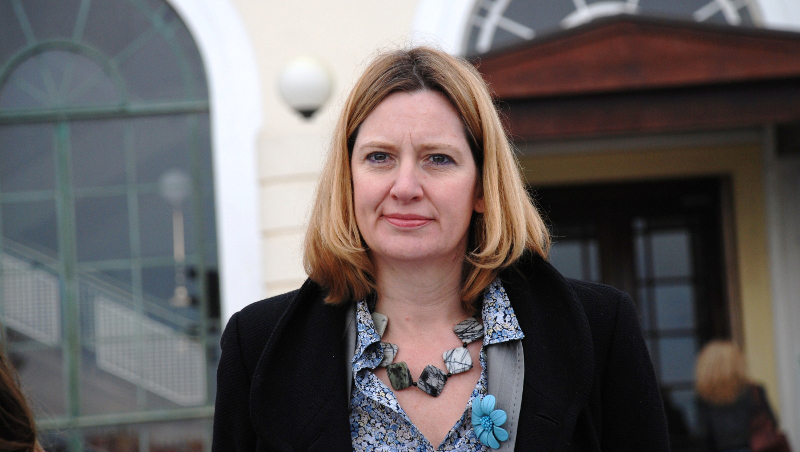Amber Rudd sets aside £9 million to clamp down on the dark web
The home secretary hopes to clean up the dark web and stop its criminal activity

It's no secret our home secretary, Amber Rudd, seemingly hates the internet, yet despite being the chief legislator, she's demonstrated herself to be equally inept about it.
Now, armed with 9 million, Rudd is taking aim at her next online victim - the dark web.
In a speech Rudd is set to deliver at the National Cyber Security Centre's conference in Manchester today, the home secretary will announce her plan to clean up the dark web and drive out its criminal users.
The dark web, which veils the identity of users to protect their privacy, also allows dodgy users to sell and distribute illegal and illicit material. It has been a hot topic for governments across the world in recent years and in an excerpt of her speech, shared with the press, Rudd is expected to say that the dark web is "a dark and dangerous place where anonymity emboldens people to break the law in the most horrifying of ways".
Off the back of this, Rudd will announced 9 million in funding to enhance the UK's specialist law enforcement response, which will use this money to help "combat the criminals who continually exploit the anonymity of the dark web".
A further 5 million will be set aside to establish more local and national police units, with a focus on cybercrime.
Quite conveniently, how exactly the money will be used is currently unknown due to "operational reasons", but the thing that concerns me is the government's current technological track record.
Get the ITPro daily newsletter
Sign up today and you will receive a free copy of our Future Focus 2025 report - the leading guidance on AI, cybersecurity and other IT challenges as per 700+ senior executives
While I mostly agree with Amber Rudd on this occasion - it is, after-all, a noble effort - the current government hasn't so far demonstrated its technological competency, and cleaning up the dark web is not going to be an easy task. Last year, Rudd famously told the Conservative Party Conference that she doesn't "need to know how encryption works to understand it's helping the criminals" - that doesn't exactly inspire confidence.
Matt Walmsley, EMEA Director at AI threat and detection firm Vectra told Alphr: "Giving police additional resources to investigate and bring cybercriminals to justice is a laudable goal, but 5 million, allocated for the regional local level support, isn't going to scratch the surface.
"Even if you get over the significant barriers of accurate attribution of the cybercrime, it's more than likely the suspects will be outside of UK legal reach, and so challenging to bring to justice. Talking of cleaning up the dark web is more political rhetoric rather than practical reality."
So far, the government's approach to regulation has been to push the responsibility onto internet service providers and organisations, rather than trying to do something themselves.
Take the most recent pornography age-restriction block, for example. A ban that was supposed to come into effect last month was pushed back to the end of the year. If the government is already struggling to enforce an age restriction, cleaning up the ever-changing world of Tor is going to be nigh-on impossible.
"If the government seeks to impose UK access controls to the dark web, then aside from technical workarounds for the more online savvy, we're going to be reopening the net-neutrality debate," continued Walmsley.
Picture: Bigstock
-
 Should AI PCs be part of your next hardware refresh?
Should AI PCs be part of your next hardware refresh?AI PCs are fast becoming a business staple and a surefire way to future-proof your business
By Bobby Hellard
-
 Westcon-Comstor and Vectra AI launch brace of new channel initiatives
Westcon-Comstor and Vectra AI launch brace of new channel initiativesNews Westcon-Comstor and Vectra AI have announced the launch of two new channel growth initiatives focused on the managed security service provider (MSSP) space and AWS Marketplace.
By Daniel Todd